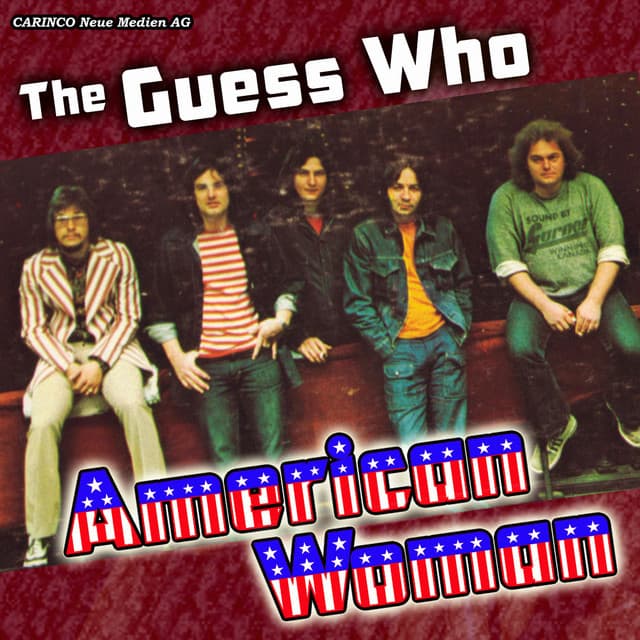
“American Woman”: A Complex Reflection of a Nation in Flux
There are some songs that, from the moment they hit the airwaves, just burrow deep into the collective consciousness, becoming not just popular tunes, but cultural touchstones. The Guess Who’s “American Woman” is undeniably one of those tracks. Released in March 1970, this powerhouse anthem quickly ascended the charts, reaching the coveted number one spot on the Billboard Hot 100 on May 9, 1970, where it held its reign for three weeks. It was a massive success, a testament to its raw energy and provocative message, and it resonated deeply with a generation grappling with profound societal shifts.
But “American Woman” is more than just a chart-topper; it’s a sonic time capsule, encapsulating the anxieties, disillusionment, and changing perspectives of a pivotal era in American history. To truly appreciate its impact, we need to cast our minds back to the late 1960s and early 1970s. The Vietnam War was raging, tearing families and the nation apart. The Civil Rights Movement had achieved significant victories but still faced immense challenges. The counterculture movement was in full swing, challenging traditional norms and values. It was a period of immense upheaval, a time when old certainties were crumbling and new realities were emerging, often violently.
The genesis of “American Woman” is as legendary as the song itself. The story goes that the band was performing in a curling rink in Southern Ontario, Canada, when guitarist Randy Bachman accidentally broke a string during a guitar solo. While he was replacing it, the rest of the band, including lead singer Burton Cummings, started jamming spontaneously. What emerged from that impromptu session was the instantly recognizable riff that drives the song. Cummings, inspired by the moment, began improvising lyrics, and the foundational elements of “American Woman” were born.
The meaning of “American Woman” has been debated and interpreted in countless ways over the decades, and that very ambiguity is part of its enduring power. On the surface, it appears to be a warning to Canadian men about the perceived dangers of American women. Cummings famously stated that the lyrics were a genuine reflection of the band’s experiences touring in the United States, particularly the perceived aggression and demanding nature of some American women they encountered. He spoke of the stark contrast between the more reserved Canadian women and their American counterparts, leading to the cautionary refrain, “American woman, stay away from me.”
However, as with many great works of art, the initial intention often gives way to broader, more profound interpretations. Many listeners, particularly during its release, understood “American Woman” as a more symbolic critique of the United States itself. The “American woman” in the song could be seen as a metaphor for the country – a powerful, seductive, yet ultimately unsettling entity. The lines “American woman, stay away from me / American woman, mama let me be” could be interpreted as a plea for Canada (or perhaps any nation) to maintain its independence and identity in the face of America’s overwhelming cultural and political influence.
Consider the political climate: Canada, a close neighbor, was acutely aware of the social unrest and military entanglements south of its border. The song’s raw, almost aggressive tone, coupled with lyrics that suggest a desire for distance, resonated with those who felt a growing disillusionment with American foreign policy and internal conflicts. The lyrics, though seemingly about women, could be easily recontextualized to express a broader sentiment of wanting to escape the chaos and perceived moral decay of the United States.
Furthermore, the song’s powerful, blues-rock sound perfectly amplified its message, whatever that message was interpreted to be. The driving guitar riff, Cummings’s powerful and often guttural vocals, and the band’s tight, energetic performance created an undeniable sense of urgency and intensity. It was a sound that mirrored the turbulent times, a primal scream of frustration and defiance.
Beyond its initial release, “American Woman” has continued to evolve in its cultural significance. Its iconic riff has been sampled and covered numerous times, most famously by Lenny Kravitz in 1999 for the movie Austin Powers: The Spy Who Shagged Me, introducing the song to a new generation. This reintroduction further cemented its place in popular culture, demonstrating its timeless appeal and adaptability.
For those of us who remember its initial impact, “American Woman” evokes a complex tapestry of memories. It’s the soundtrack to long car rides with the windows down, the background music to late-night discussions about the state of the world, and a powerful reminder of a time when music wasn’t just entertainment, but a vital commentary on the human condition. It’s a song that, even now, after all these years, still has the power to make us stop, listen, and reflect on the intricate relationship between a song, its moment in history, and the enduring truths it might hold. It’s a testament to The Guess Who’s enduring artistry and a powerful artifact of a nation in flux.